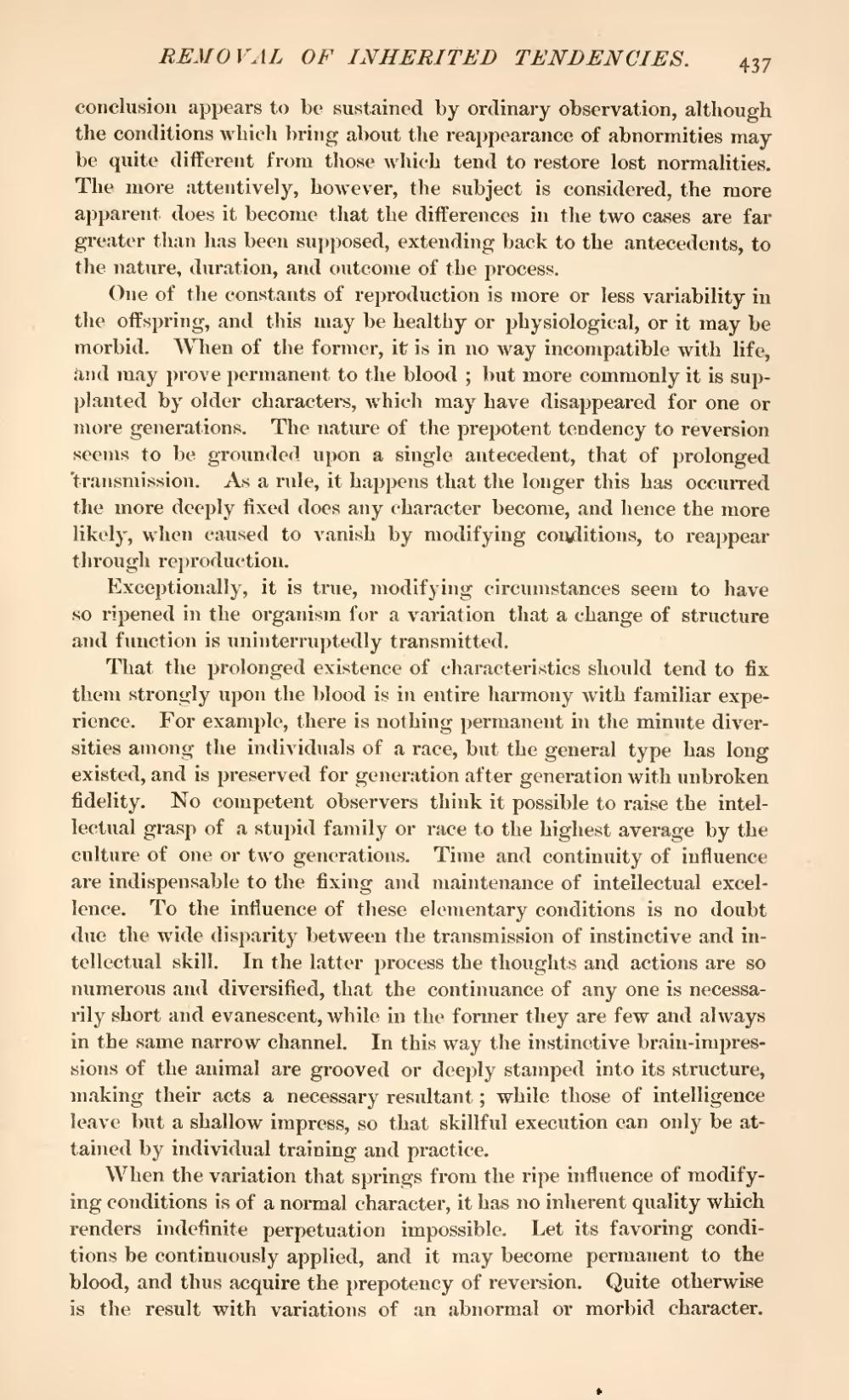conclusion appears to be sustained by ordinary observation, although the conditions which bring about the reappearance of abnormities may be quite different from those which tend to restore lost normalities. The more attentively, however, the subject is considered, the more apparent does it become that the differences in the two cases are far greater than has been supposed, extending back to the antecedents, to the nature, duration, and outcome of the process.
One of the constants of reproduction is more or less variability in the offspring, and this may be healthy or physiological, or it may be morbid. When of the former, it is in no way incompatible with life, and may prove permanent to the blood; but more commonly it is supplanted by older characters, which may have disappeared for one or more generations. The nature of the prepotent tendency to reversion seems to be grounded upon a single antecedent, that of prolonged 'transmission. As a rule, it happens that the longer this has occurred the more deeply fixed does any character become, and hence the more likely, when caused to vanish by modifying conditions, to reappear through reproduction.
Exceptionally, it is true, modifying circumstances seem to have so ripened in the organism for a variation that a change of structure and function is uninterruptedly transmitted.
That the prolonged existence of characteristics should tend to fix them strongly upon the blood is in entire harmony with familiar experience. For example, there is nothing permanent in the minute diversities among the individuals of a race, but the general type has long existed, and is preserved for generation after generation with unbroken fidelity. No competent observers think it possible to raise the intellectual grasp of a stupid family or race to the highest average by the culture of one or two generations. Time and continuity of influence are indispensable to the fixing and maintenance of intellectual excellence. To the influence of these elementary conditions is no doubt due the wide disparity between the transmission of instinctive and intellectual skill. In the latter process the thoughts and actions are so numerous and diversified, that the continuance of any one is necessarily short and evanescent, while in the former they are few and always in the same narrow channel. In this way the instinctive brain-impressions of the animal are grooved or deeply stamped into its structure, making their acts a necessary resultant; while those of intelligence leave but a shallow impress, so that skillful execution can only be attained by individual training and practice.
When the variation that springs from the ripe influence of modifying conditions is of a normal character, it has no inherent quality which renders indefinite perpetuation impossible. Let its favoring conditions be continuously applied, and it may become permanent to the blood, and thus acquire the prepotency of reversion. Quite otherwise is the result with variations of an abnormal or morbid character.

